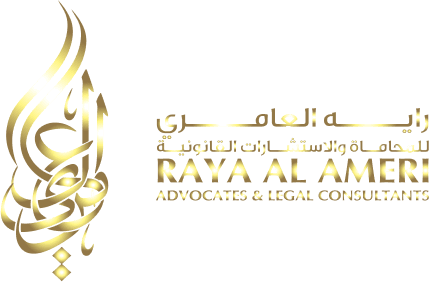UAE Emiratisation Law 2024: Pioneering Workforce Transformation
Key Insights:
- Enforced Inclusion of Emiratis in UAE’s Private Sector: Groundbreaking mandates under the UAE Emiratisation law.
- Incremental Emiratisation Quotas: Yearly increase, with substantial penalties for non-compliance.
- Broader Inclusion Criteria for Smaller Firms: Now encompassing companies with 20-49 employees.
Embracing the Emiratisation Law in the UAE
Under the revised “Emiratisation law UAE,” the private sector in the United Arab Emirates is undergoing significant changes. These amendments underscore a dynamic commitment to amalgamating Emiratis into a wide array of economic sectors, fostering a workforce that is both diverse and inclusive.
Understanding the Emiratisation Mandate
Emiratisation, a strategic initiative under the UAE Emiratisation law, compels the integration of Emirati nationals into the workforce, particularly within the private sector. This policy mirrors the UAE’s aspiration for a robust, diversified economy.
Emiratisation Trajectory in Major Corporations
Enterprises with over 50 employees are now facing an annual increment in their Emiratisation rates. By 2026, these companies are expected to have a 10% boost in skilled Emirati employees, a move encouraged by incentives for effective citizen training and employment. Non-compliance with the “UAE Emiratisation law” will result in increasing financial penalties.
Legal and Operational Implications
This expansion brings significant legal and operational implications for businesses in the UAE. Firms are now required to strategically integrate “Emiratisation” into their hiring processes, aligning with the MOHRE‘s directives to avoid severe penalties.

2024’s Revised Emiratisation Law: Expanded Scope and Impact
The Emiratisation strategy in the UAE takes a significant leap in 2024, extending its influence to include smaller private sector companies. Previously, the focus was primarily on larger corporations, but the updated law now casts a wider net, encompassing businesses with 20 to 49 employees. This expansion is a pivotal move to integrate Emirati talent across a diverse range of sectors, amplifying the initiative’s reach and impact.
Here’s a concise overview of what this means for businesses in 2024:
- For Smaller Businesses (20-49 Employees): These companies now have a mandate to hire at least one Emirati national in 2024, followed by another in 2025. Non-compliance could lead to financial penalties. This move is not just regulatory but is set to open up roughly 12,000 new job opportunities for UAE nationals annually, notably in burgeoning sectors like Life Sciences.
- For Larger Enterprises (50+ Employees): The expectation here is a 2% increase in Emirati representation in skilled positions.
Non-adherence to these regulations will result in substantial financial consequences from January 2025, with fines amounting to AED 96,000 (around $26,100) for each unfilled Emirati position.
The law categorizes employers into three distinct tiers, based on their compliance level:
- The front-runners, who meet or exceed Labor Law and Emiratization requirements and may use the NAFIS portal for hiring and training Emiratis. They receive favorable benefits.
- Those aligning with the Emiratization requirements, enjoying reduced work permit fees.
- The non-compliant group, not adhering to the federal Labour Law and Emiratization requirements for two consecutive years, facing increased fines and work permit fees, and potential permit suspensions or refusals.
Compliance with Legal Obligations
Companies are required to adhere to several legal obligations under the “UAE Emiratisation law” when hiring Emiratis, including work permit acquisition, contract drafting, and social security registration. The MOHRE has set clear guidelines to prevent fraudulent practices in Emiratisation.

Penalties for Non-Compliance
To ensure strict adherence to the “Emiratisation” quotas, the UAE government has set specific targets across various sectors. Companies that fail to meet these targets will face significant fines. This includes penalties for companies attempting to bypass these requirements by reducing their workforce or manipulating employee classifications.
Details of the Fines for Non-Compliance:
- Initial Violation: A company that fails to meet the Emiratisation quotas for the first time will incur a fine of AED 100,000.
- Second Consecutive Violation: If a company repeatedly fails to meet the Emiratisation targets for two consecutive years, the penalty increases to AED 300,000.
- Subsequent Violations: Further non-compliance, occurring for the third time or more, will result in a more severe penalty, reaching AED 500,000.
Additional Penalties for Annual Non-Compliance:
- In 2024, companies not meeting their annual “Emiratisation” targets could face fines up to AED 96,000 for each unappointed Emirati.
- This fine will increase in 2025, with penalties reaching AED 108,000 for each Emirati not employed as per the quotas.
- Moreover, continuous failure to comply with the required Emiratisation rate will result in additional monthly penalties, further emphasizing the importance of meeting these national employment objectives.
Emiratisation Across Diverse Sectors
The “Emiratisation” initiative extends to various sectors, emphasizing the placement of skilled Emiratis. This strategy aims to enhance the professional capabilities of Emirati workers in the private sector, going beyond mere quota fulfillment.
Nafis: A Key Player in Emiratisation
The Nafis initiative is a crucial element in “Emiratisation,” aiming to integrate 75,000 Emiratis into the private sector. It includes training programs like the Teaching Specialists’ Programme, tailored to meet job market needs. The Nafis award recognizes private sector companies excelling in employing UAE nationals.

Future Prospects of Emiratisation
The “UAE Emiratisation law” drives towards a significant increase in the employment rate of Emiratis in the private sector, aiming for a 10% rise by 2026. This initiative is integral to the UAE’s vision for a diverse, competitive workforce, signifying a commitment to sustainable economic progress.
Adapting to the Emiratisation Law: Key Steps for Employers
Businesses in the UAE must regularly assess their compliance with the “Emiratisation law UAE,” focusing on integrating UAE nationals into their workforce. This involves HR departments developing effective recruitment strategies to increase the number of Emirati employees by 2026, while fostering an inclusive workplace culture.
Employer Responsibilities Under Emiratisation Law
Employers are required to fulfill certain obligations under the “Emiratisation law,” such as obtaining work permits for Emirati employees, contributing to their pension and social security, and adhering to employment regulations like fair wages and contracts. Additionally, investing in training programs for Emirati staff is crucial for both compliance and the development of a skilled workforce. Regular adaptation to changing regulations is key to successfully navigating the “Emiratisation law.”

Conclusion: The Significance of the Emiratisation Law 2024
The “Emiratisation Law 2024” marks a significant shift in the UAE’s workforce strategy, symbolizing a move towards greater economic diversity and sustainability. By implementing this law, the UAE government underscores its commitment to fostering an inclusive workforce that harnesses the talents and potential of its citizens. This initiative not only aims to rectify the current imbalance in the workforce but also to empower Emiratis by providing them with ample opportunities in various sectors of the economy.
The law’s focus on increasing Emirati presence in the private sector, coupled with the introduction of stringent compliance measures and penalties for non-compliance, highlights the seriousness of the UAE’s intentions. As the nation continues to grow and diversify its economy, the success of the Emiratisation strategy will be a key factor in ensuring that the development is sustainable and reflective of the nation’s diverse talent pool.
Seeking Legal Assistance with Emiratisation Compliance?
At Raya Al Ameri Advocates & Legal Consultants, we specialize in guiding companies through the complexities of the “Emiratisation Law 2024.” Our team of experienced legal professionals is well-versed in UAE labor laws and is dedicated to helping your business seamlessly integrate these new regulations into your operational framework.
We offer comprehensive legal advice and strategic planning to ensure your company not only complies with the Emiratisation mandates but also thrives under the new regulations. Contact us today to schedule a consultation and ensure your business is aligned with the UAE’s visionary workforce transformation.

